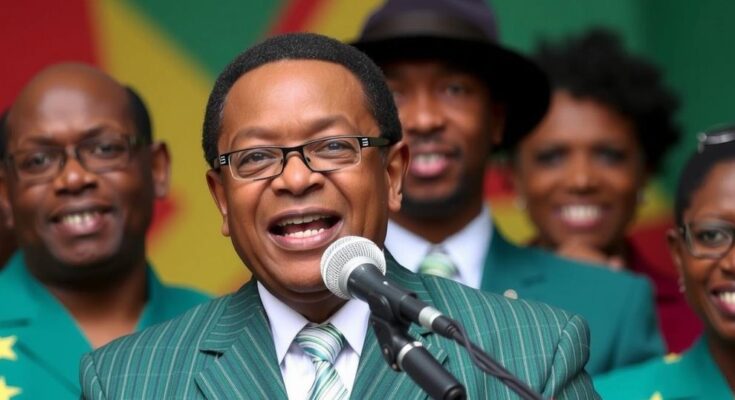Mozambique’s top court upheld the ruling Frelimo party’s victory in a disputed election, amidst claims of electoral fraud and rising tensions. Daniel Chapo’s confirmed victory came after allegations led to violent protests, prompting international calls for peace and dialogue. The opposition leader, Venancio Mondlane, rejected the results and sought justice, further complicating the nation’s political landscape.
Mozambique’s highest court, on Monday, validated the ruling party’s contested victory in the October elections amid widespread accusations of electoral fraud that have led to violent clashes across the nation. The Constitutional Court determined that Frelimo’s presidential candidate, Daniel Chapo, received 65 percent of the votes, a reduction from the electoral commission’s earlier figure of nearly 71 percent. In contrast, his primary challenger, exiled opposition leader Venancio Mondlane, had his vote percentage amended to 24.2 percent. This confirmation continues Frelimo’s long-standing dominance in Mozambican politics, positioning Chapo to succeed President Filipe Nyusi following his second term, which concludes on January 15.
The opposition has vehemently denounced the election results as fraudulent, with Mondlane asserting that an alternative count indicates he had sufficient votes to claim the presidency. Additionally, various international observer missions have raised concerns over observed electoral irregularities. In response, U.S. State Department spokesperson Matthew Miller emphasized the “lack of transparency” surrounding the election results and called for calm while urging all political factions to engage in constructive dialogue to facilitate peace.
Mozambique has a long history of political tension, especially regarding its electoral processes. The ruling Frelimo party has governed the country since its independence in 1975, leading to a one-party dominance dynamic. In recent years, the opposition’s growing disillusionment and accusations of electoral malpractice have escalated political unrest. The recent election results ignited fears of further violence, particularly following the assassination of Mondlane’s lawyer, prompting calls for accountability and reform from both domestic and international communities. The tension has severely impacted daily life in Mozambique, with notable increases in public protests, leading to significant fatalities and a heightened police presence.
The confirmation of Frelimo’s electoral victory by Mozambique’s highest court has exacerbated fears of renewed violence amidst ongoing political instability. With the opposition’s claims of a rigged election and calls for uprising, the situation remains precarious. International observers emphasize the need for transparency and dialogue to mitigate escalating tensions. As Mozambique grapples with its complex political reality, the path toward peace and reconciliation remains uncertain.
Original Source: www.wfxg.com




